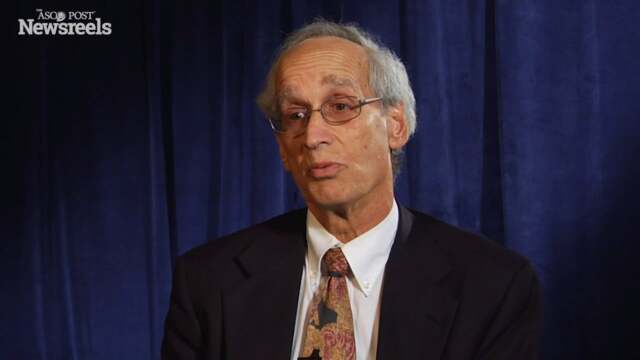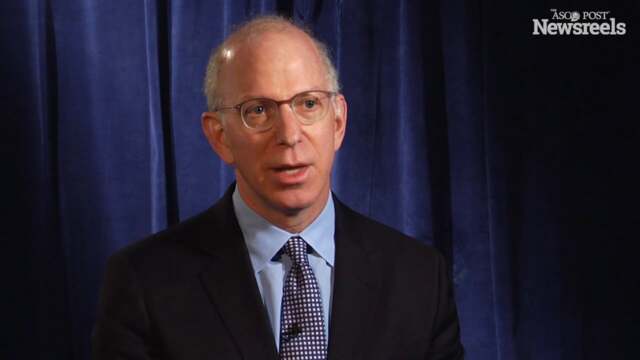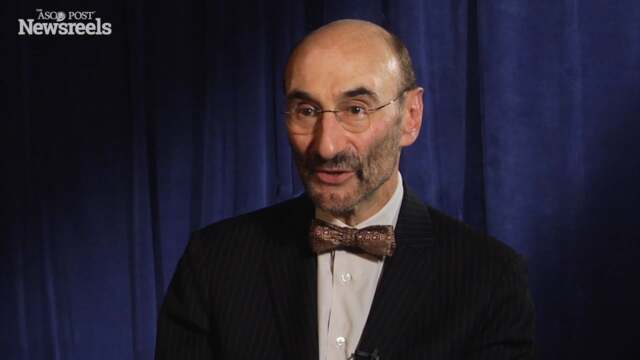Reshma Jagsi, MD, DPhil, on the Initial Results of the TBCRC 024 Study on Breast Cancer
2015 ASTRO Annual Meeting
Reshma Jagsi, MD, DPhil, of the University of Michigan Health System, discusses this multicenter phase 1 study of veliparib given concurrently with chest wall and nodal radiation therapy in patients with inflammatory or locoregionally recurrent breast cancer (Abstract 312).
Jay Harris, MD
Jay Harris, MD, of Dana-Farber Cancer Institute and Brigham and Women’s Hospital, discusses the difficulty reconciling recent important trials on radiotherapy for breast cancer: The Z11 trial suggested that breast tangents are sufficient, while MA.20 and EORTC studies suggested that full nodal irradiation is beneficial.
Joel E. Tepper, MD
Joel E. Tepper, MD, of the University of North Carolina School of Medicine, discusses the ways in which SBRT has changed radiotherapy, as demonstrated in key studies presented at this year's meeting on stereotactic body radiotherapy for liver metastases and hepatocellular carcinoma, and borderline resectable and unresectable pancreatic tumors (Abstracts 253, 255, 351, 357).
Howard M. Sandler, MD
Howard M. Sandler, MD, of Cedars-Sinai Medical Center, discusses this phase III noninferiority study comparing two fractionation schedules in patients with low-risk prostate cancer (Abstract LBA6).
Bruce Minsky, MD
Bruce Minsky, MD, of MD Anderson Cancer Center, discusses two important papers: results from a prospective trial on quality-of-life outcomes for low-risk HPV-associated oropharyngeal squamous cell carcinoma, and a prostate cancer radiation therapy study (Abstracts 3, 4).
Robert Kuske, MD
Robert Kuske, MD, of Arizona Breast Cancer Specialists, discusses the evaluation of more than 1,300 patients with accelerated partial-breast irradiation via multicatheter interstitial brachytherapy, focusing on toxicity and cosmetic outcomes (Abstract 133).





